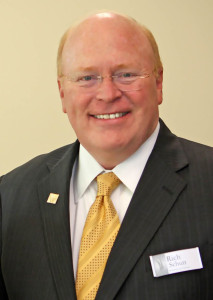By Rich Schutt, Global Ageing Network Board Chair
 As we peer into the future of 2018, I would like to share my perspective on 3 things:
As we peer into the future of 2018, I would like to share my perspective on 3 things:
- There are uncertainties and expected changes as we look towards the future.
- There are things that are reasonably predictable for the future.
- The position of the Global Aging Network.
As I begin my term as Chair, I am honored to serve on a talented Board who geographically represent 5 continents with aging services. Collectively, your Board of Directors has many years of experience providing for the aging in the world. This Board serves without compensation, and they and their organizations often grant additional charity to beneficiaries of the Global Aging Network.
As we begin our 24th year, we have much for which to be thankful. Our membership has been growing thanks to new relationships with new Chapters and Affiliates, such as the Malawi Network of Older Persons (MANEPO) and the Malaysian Ageing Network. Katie Smith Sloan is an experienced and knowledgeable executive, with a senior team of managers and researchers who are aptly positioned to move the Global Aging Network forward.
Uncertainties and expected changes in the future:
There are many uncertainties as we face the future. There are those who believe that the trajectory toward globalization may be compromised by a rise in nationalism. There is fear that the British exit from the European Union and the “Make America Great Again” policy of U.S. President Trump (as well as other national policies) may interrupt years of progress towards globalization.
At the same time, questions arise whether the relative strength and growth of the global economy will continue to rise, or if we will see economic challenges in the near-term future. Uncertainties have arisen relative to cyber-currencies like Bitcoin, which are becoming more popular. Will this make it harder for countries to manage monetary policy from central banks? And of course, there is the omnipresent question of political stability or unrest across the globe.
We wonder if there will be a substantial cure found for various chronic diseases or at least medications that forestall their onset? Will there be enough trained staff to assist elders, whether in their homes or in congregate settings?
Finally, we wonder by what procedures we would best serve our aging populations, and we seek out answers on efficiency, resources, and skills.
Those things which are relatively certain in the future:
Despite the uncertainties above, there are some things which we are relatively confident. The world is aging and there will be older people. We realize that with age comes various morbidities that need to be cured, ameliorated, or managed. Regardless of advances in medicine and public health, there will likely still remain a need for large increases in resources to serve the elderly and trained workers.
The shortage of trained staff that is capable and available to work in the developed world is likely to call upon citizens of other nations to fill open positions, thus acquiring talent but leaving a possible void of talent in the developing world. There are both economic and ethical considerations in this circumstance which may call for a review of immigration policies.
I am convinced that technology will be a significant force in serving the aging. It offers some potential to minimize staffing needs and has the potential to make living longer and better. It also has the potential to connect people who otherwise would live in loneliness and despair.
I am convinced that serving an aging world remains a “growth industry” compelling international focus on people and the aging process.
How is the Global Aging Network prepared to navigate the uncertainties of the future?
The Global Aging Network will take its collective experience and continue to build on a solid foundation. As a globally connected community, we are prepared to build on our past to enhance the experience of aging around the world. We have a very capable staff, researchers, technologists, and providers of service who are leveraging their individual experiences to the greater service of humanity. As we share experiences and encourage one another we will undoubtedly benefit our aging societies.
We have ambitious plans for the coming years at the Global Aging Network (GAN). Here are just a few of them:
- We plan to continually promote high-quality research on a platform where the world’s best practices can be shared, taught, and learned.
- We hope to increase scholarship opportunities for persons from developing countries to attend GAN meetings and conferences.
- In addition to our biannual conferences, we are exploring the use of webinars and shared conversations. We intend to capture the internet’s ability to draw the world closer and to minimize the costs of our member’s geographic distance.
- We will continue our engagement on the United Nations Open-Ended Committee on Civil Rights for the Elderly, working to obtain the respect and honor the world’s aging deserve.
- We hope to expand the successful ‘Buddy Program” which was recently employed at the conference in Montreux, Switzerland. This program matched existing members of GAN with new attendees, to pave the way for their assimilation into our global network.
- As we further the connectedness of our members, we will gain new colleagues and increased wisdom.
The Global Aging Network intends to remain a place where caring people meet people who will care about them.
You need to login in order to like this post: click here
